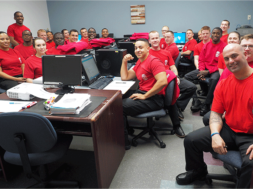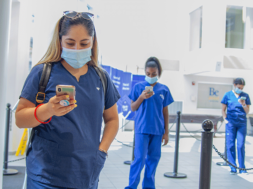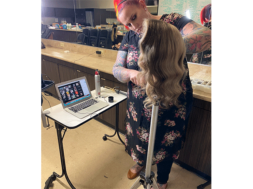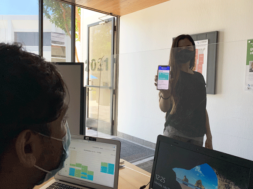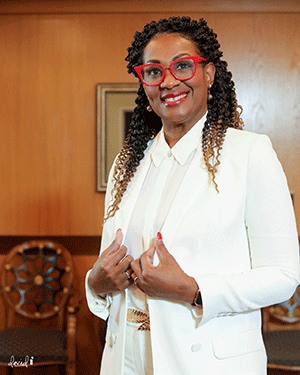
Working in Educational Silos
By Dr. Suzanne Morrison William, Owner, Dr Sue Speaks LLC
In the old days, the students would go into Admissions and be guided into a program. Those students would then be spirited off to Financial Aid who would help the student figure out how to pay for that education and also how to maybe get some living expenses while they pursued this new career path. They would then be passed off to Advisors and Faculty in Academics who would guide them through the educational process. Then they would be handed off to Career Services who would help polish them up for job placement. Once working, they would become alumni and resources for the program and school to utilize for program improvement or they would be helping to finance scholarships and externships as part of the Alumni process.
If you grew up in the for-profit educational process, this is what you knew. Now in some schools, there were distinct silos and nobody from any of the main areas (a) Admissions (b) Financial Aid (c) Student Accounts (d) Academics (e) Advising (f) Career Services (g) Alumni Relations (h) Accreditation and Compliance would have any interaction with each other. They did not want anyone in their areas and they did not venture into others. I’m glad to say that I was allowed the opportunity to wander freely through all of the areas. After 22 years in the business, I can say that I’m fairly knowledgeable about most areas because I’ve had two jobs that saw me as Academic operations and not as Academic Affairs and that made a huge difference in what I could do, what I could impact and what I would learn.
As a faculty member, I was largely insulated against the workings of the organization. I knew there were rules I needed to follow as a faculty member which I did and that in turn allowed me to collect a paycheck.
I had no idea that my taking attendance was tied to a student’s financial aid. I had no idea that the retention in my class was tied to state and organizational accreditation standards. I had no idea that success in my courses was a measure that the government was looking at or that the student’s level of satisfaction with the education I was imparting was part of an accrediting standard. When I became a leader in the organization, I thought it necessary that faculty understood how important they were not just to teaching, but to the entire success and continued existence of the institution. If faculty members don’t see how they impact the bigger picture, then they are not ever going to ensure that they are part of the solution and they will never embrace the organizational vision.
When I became a Program Chair, I thought that my sole role was to simply (a) schedule classes (b) ensure the right faculty taught courses (c) oversee student advising, success and persistence and (d) help career services to get students great jobs. I did that job for five years, but it was not until I was promoted to being the Assistant Dean that I truly understood that doing that job meant I was having a positive impact on (a) the Student Accounts department because happy successful students stay enrolled and pay their bills thus leading to (b) successful graduates and (c) contributing alumni while all (d) meeting accreditation and compliance guidelines.
Education is a jigsaw and everyone has a part to play that interacts with one and sometimes multiple pieces and it is essential that everyone understands the big picture so that they can see how they impact the whole.
If they see themselves as a silo impacting no one then they make decisions that are often detrimental to the whole. By the time I became a Vice President, I had been working in the field for over 10 years and understood how all the parts played together. I understood that it was necessary for me to interact with Admissions to (a) get students (b) help with marketing and (c) produce and execute product knowledge modules so that the team would be up to date with recruiting.
I understood that if I had a student come to me with financial woes then I needed to walk them to Financial Aid or Student Accounts and figure out how to get them the help they needed in order to persist. Sometimes that meant going to Career Services to figure out employment and/or Student Services to figure out housing, medical or psychiatric help if that was what was needed. I understood the struggles of working parents and full-time workers attempting to upskill to a new reality. If I needed to figure out how to either permanently or temporarily move a student from full-time to part-time, then that’s what we did. It often meant working collaboratively with other departments to ensure the student’s needs were met.
Once I had a boss who had a son who worked for the Ritz-Carlton. They had a philosophy that if they encountered a guest with an issue, then it was that employees’ job to either (a) solve the problem or (b) find the person who would. And the staff member could NOT give up responsibility for that guest until another staff member had assumed the responsibility to service that guest. I thought that was the ultimate in customer service and so when I became a Dean, it was something that I thought should be implemented to ensure student satisfaction with the educational process. We didn’t just pass students along to the next person and make them someone else’s problem. NO, that student is a valued customer and we need their issues resolved.
Fast forward to a few years later when I’m having a discussion about the birth of a new program and a current Chair is having some issues and angst about the direction leadership wanted to take the program. The Chair had serious concerns about the program and how it was being deployed. The Chair indicated that the deployment when aligned with cost and lifestyle did not bode for success. The Chair was told that their role was singular in nature and should focus ONLY on deploying the curriculum and not on the attendant issues which could make the student choose to stop enrollment or would cause other issues.
This philosophy is very common in some educational institutions and is indicative of a SILO mentality. It essentially relegates each team member to their singular role and does not allow them the ability to interact, collaborate or problem-solve across departmental lines. This is often a huge issue that leads to poor organizational communication, stymied processes and disgruntled students. In a small organization, this is often easy to hide, but the bigger the school, the more pronounced it becomes especially if this is occurring within a system of schools with multiple campuses, locations and leaders of varying areas.
As someone who believes in promoting from within, this is virtually impossible in organizations like these because people are actively encouraged to ‘stay in their lane’ so to venture out of their lane means literally getting into a new car usually on a different highway.
Because I look at Academics as an Operational as well as an educational function, I think cross-departmental communication and collaboration are essential. City College, Inc was sold in 2021, but it was my greatest joy to work there as the VP of Academic Affairs because of how our Corporate Team operated. In 2016 our team took the unprecedented decision to become a real team. That meant that each week we held meetings with each other and talked through issues and processes. We did this without the President because we figured it was essential that we the President’s team figured out how we would function and then show her how her team would be effective in achieving her vision.
The process of moving our team from storming to performing was a harrowing process, but we were all committed to its success and after about six to nine months, we were able to sit in front of the President as a fully functional team. This did not mean that we agreed on everything, but what we had was (a) respect for each other’s knowledge and expertise (b) faith knowing that none of us would actively or knowingly sabotage anybody else on the team (c) that we would collaborate as a team because we understood that together our collective experience and expertise led to better outcomes than doing things in a singular way. This worked so well that the President felt even more confident with her Leadership Team and we found that we were able to make faster more effective decisions because of this process.
Having worked in organizations that are both SILO’d and those which are not. I can say with confidence that a SILOed organization may seem successful when first viewed but when it is carefully examined what you will find is:
- No knowledge of a global goal by anyone in the organization
- No alignment of personal or organizational vision
- Poor organizational communication
- Lack of holistic processes
The thing that is critical for a siloed organization to understand is that it can never become a learning organization if it exists in SILOS because a learning organization requires:
- Shared vision
- System thinking
- Team learning
- Personal mastery
- Mental models
And if these things are not present, then the organization will eventually become bogged down and inefficient. If that becomes the culture, then both the students and staff will leave and the organization will effectively cease to exist.
DR. SUZANNE MORRISON WILLIAM, is Dr Sue Speaks, an educator, author and life coach. She is the owner of Dr Sue Speaks LLC which is a Leadership, Management and Empowerment organization. Her website is www.drusuespeaks.com and she can also be found on LinkedIn at https://www.linkedin.com/in/suzanne-dr-sue-morrison-williams-7467b07/ or on Instagram as @drsuespeaks. In 2020 she authored a book, BossLadyship: Color me a Bosslady which is currently available on Amazon in Kindle and printed format.
Dr. Morrison-Williams has served in numerous roles within Higher Education including faculty, faculty development director, Program Chair, Assistant Dean, Associate Dean, Director of Education, Campus Director, as well as a Regional Vice President. In her roles, she has been responsible for the development and deployment of curriculum, student persistence, student success, student satisfaction, regulatory compliance, accreditation, faculty development as well as interfacing with Career Services on student placement after graduation. She has extensive experience in education, organizational leadership and mentorship. She has two degrees from FIU. A Bachelor’s in Communication (Public Relations) and a Master’s in Public Administration. In 2015, she earned an Ed.D. in Organizational Leadership from Argosy University.
Contact Information: Dr. Suzanne Morrison William // Owner // Dr Sue Speaks LLC // Contact@drsuespeaks.com // www.drusuespeaks.com



